News & Event


News & Event
News & Event
The New Year’s Virtual S&T Policy Forum 2021
- Writer Kyeongmi Kim
- Date2021-01-20
- Hit1,697
File
-
Download
 5.jpg
(634.1KB / Download 332회)
5.jpg
(634.1KB / Download 332회)
Korea Institute of S&T Evaluation and Planning (KISTEP) hosted ‘The New Year’s Virtual S&T Policy Forum 2021’ on Tuesday, January 19th. The forum introduced the Biden administration’s STI policies and discussed Korea’s feasible policies toward them. You can watch the forum again at KISTEP YouTube channel.
(Link) https://www.youtube.com/watch?v=8URmc8UA6_g&t=4714s
Sang-Seon Kim, president of KISTEP, opened up the forum in the opening speech, “Especially in Pax Technica era, Korea-U.S. Cooperation is crucial in science, technology, and innovation, and in-depth studies on planning suitable strategies should be conducted with regard to the Biden administration’s STI policies."
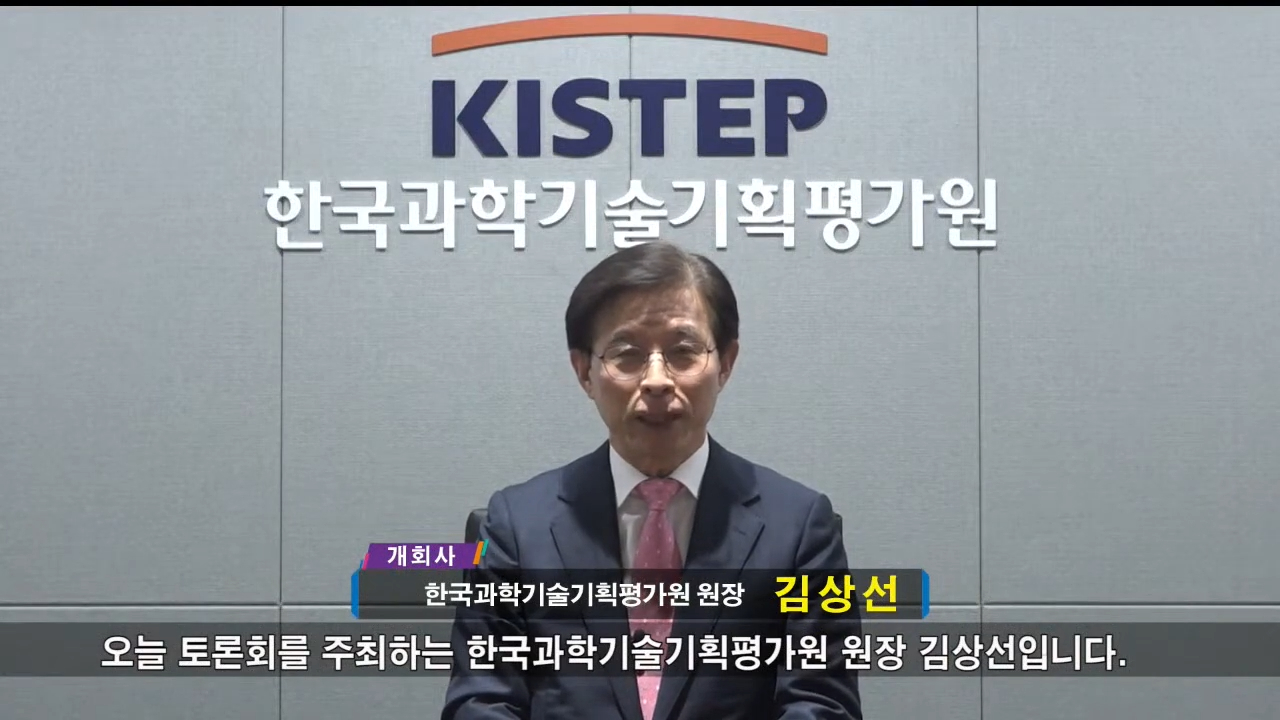
A director at Korea Institute for Advancement of Technology (KIAT), Hyeoncheol Kim, explained the manufacturing and innovation segment of Biden administration’s Build Back Better economic plan and, accordingly, change in GVC (Global Value Chain). Along with depth analysis on Biden’s STI policies, he addressed in what ways they can impact our government’s policies and laid out three recommendations to secure national competitive advantages ▲by monitoring investment-related policies in promising industries ▲by supporting ‘Re/Near-shoring’ of Korean companies in response to reorganization of the U.S. central supply chain ▲by developing digital transformation(DX).
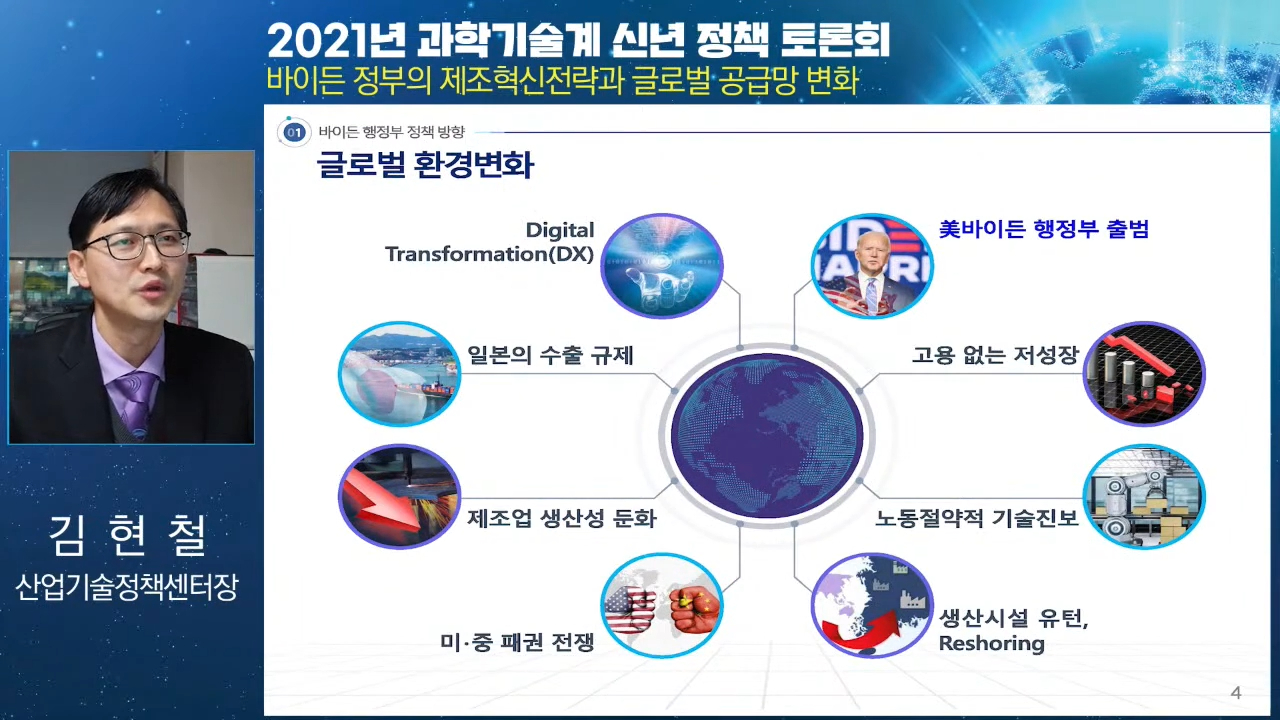
The third topic, presented by a senior research fellow at Korea Energy Economics Institutes (KEEI), Uiseok Yang, was the change in the U.S. policies towards climate change and energy along with Korea’s strategic approach to them. He compared Trump’s and Biden’s energy policies, especially focused on fossil energy, renewable energy, and nuclear plant energy. Then, he added its impacts on Korean industry and our adequate action to take.
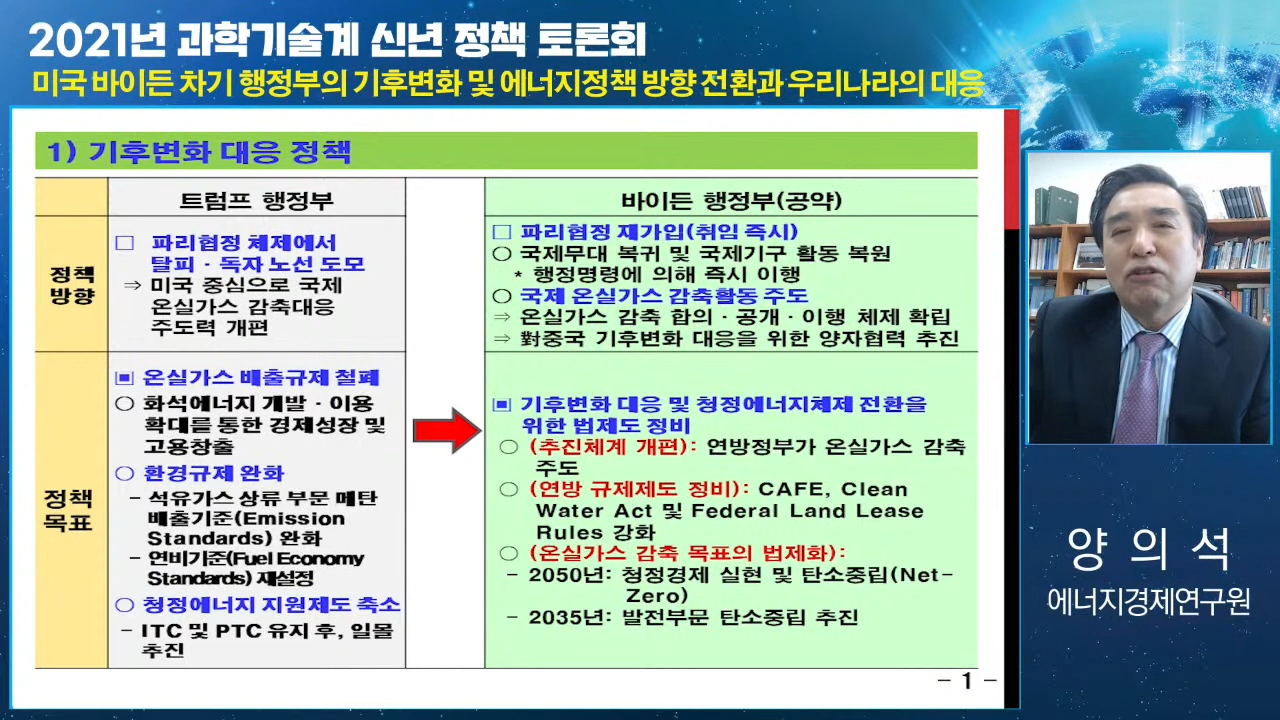
In the panel discussion, followed by the speech, panelists exchanged their views about what change the Biden administration’s STI policy could bring, in presence of a moderator, Gilju Mun (former UST president), with Sanghun Kim(Korea Institute for Industrial Economics & Trade, KIET), Yumi Kim(Samsung SDI), Songi Seol(Korea International Trade Association, KITA), Seongho Lee(Korea Energy Technology Evaluation and Planning, KETEP), Hoyeong Lee(Korea Information Society Development Institute, KISDI), Ho Choi(Electronic Times Internet, ETnews), and Seonhwa Han(former KISTI president).
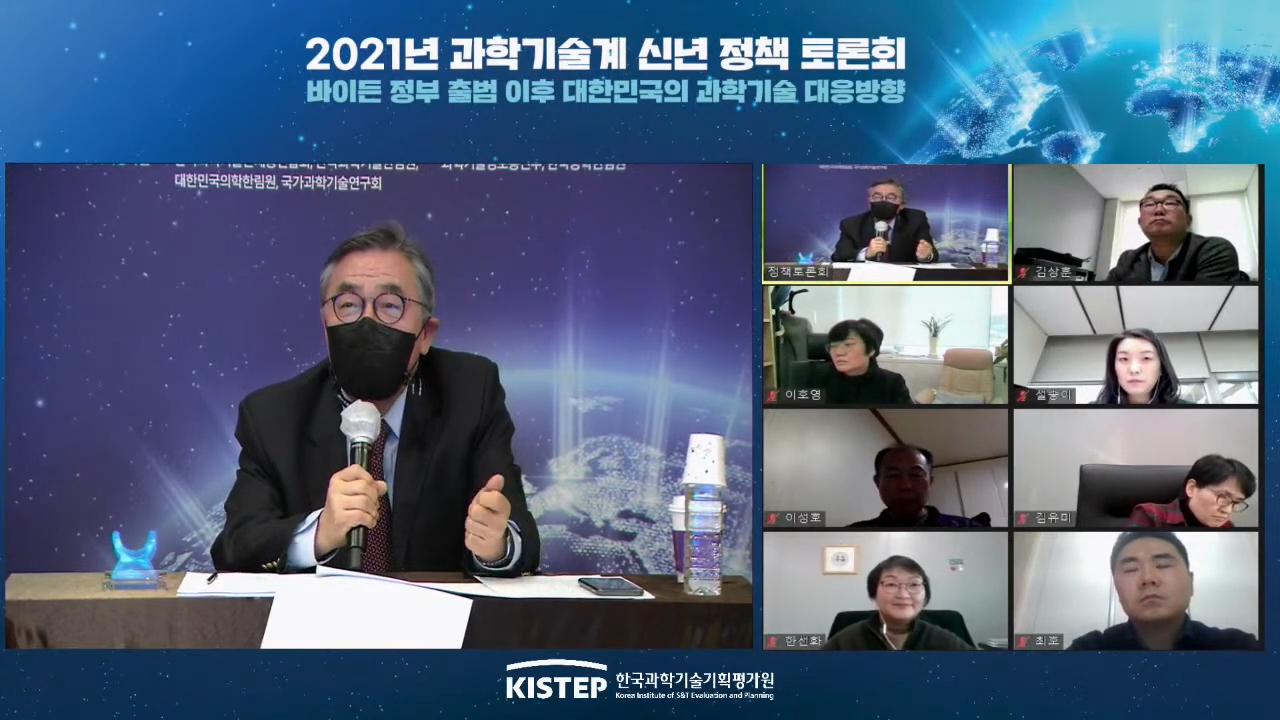
(Link) https://www.youtube.com/watch?v=8URmc8UA6_g&t=4714s
Sang-Seon Kim, president of KISTEP, opened up the forum in the opening speech, “Especially in Pax Technica era, Korea-U.S. Cooperation is crucial in science, technology, and innovation, and in-depth studies on planning suitable strategies should be conducted with regard to the Biden administration’s STI policies."

▲ (Opening speech) Sang-Seon Kim, president of KISTEP
First, Suncheon Byeon, the head of the office of S&T Policy Planning (KISTEP), introduced the STI policies announced by the Biden administration, and suggested corresponding strategies that our government can develop, which are ▲systematization of STI policies ▲proactive approach to climate change ▲stabilization of the Korea-U.S. alliance ▲R&D innovation and consolidation of control tower.
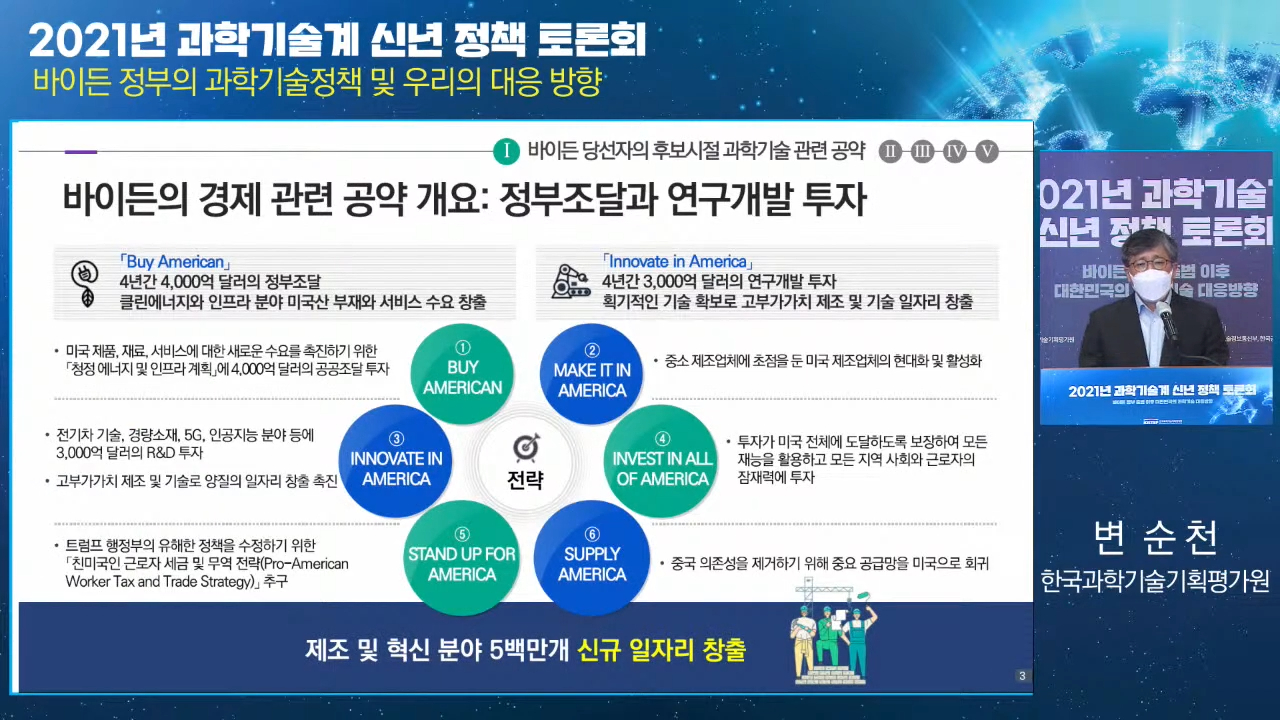

▲ (Presenter 1) Suncheon Byeon, head of the office of S&T Policy Planning, KISTEP
A director at Korea Institute for Advancement of Technology (KIAT), Hyeoncheol Kim, explained the manufacturing and innovation segment of Biden administration’s Build Back Better economic plan and, accordingly, change in GVC (Global Value Chain). Along with depth analysis on Biden’s STI policies, he addressed in what ways they can impact our government’s policies and laid out three recommendations to secure national competitive advantages ▲by monitoring investment-related policies in promising industries ▲by supporting ‘Re/Near-shoring’ of Korean companies in response to reorganization of the U.S. central supply chain ▲by developing digital transformation(DX).

▲ (Presenter 2) Hyeoncheol Kim, director, Korea Institute for Advancement of Technology (KIAT)
The third topic, presented by a senior research fellow at Korea Energy Economics Institutes (KEEI), Uiseok Yang, was the change in the U.S. policies towards climate change and energy along with Korea’s strategic approach to them. He compared Trump’s and Biden’s energy policies, especially focused on fossil energy, renewable energy, and nuclear plant energy. Then, he added its impacts on Korean industry and our adequate action to take.

▲ (Presenter 3) Uiseok Yang, senior research fellow, Korea Energy Economics Institutes (KEEI)
In the panel discussion, followed by the speech, panelists exchanged their views about what change the Biden administration’s STI policy could bring, in presence of a moderator, Gilju Mun (former UST president), with Sanghun Kim(Korea Institute for Industrial Economics & Trade, KIET), Yumi Kim(Samsung SDI), Songi Seol(Korea International Trade Association, KITA), Seongho Lee(Korea Energy Technology Evaluation and Planning, KETEP), Hoyeong Lee(Korea Information Society Development Institute, KISDI), Ho Choi(Electronic Times Internet, ETnews), and Seonhwa Han(former KISTI president).

▲ (Panel discussion) moderator (left) and panelists (right)